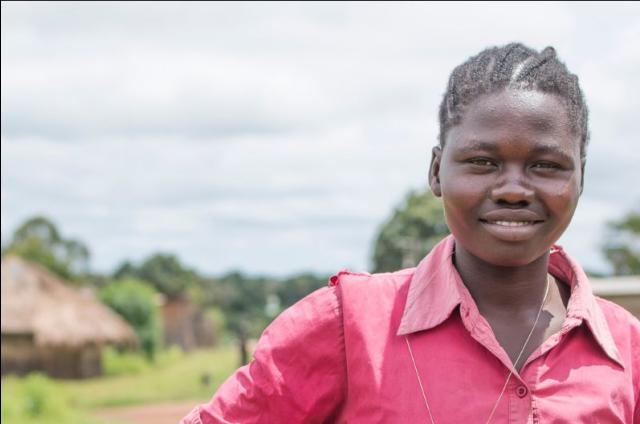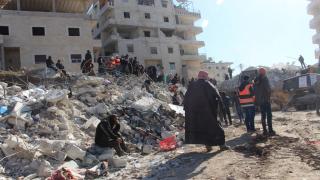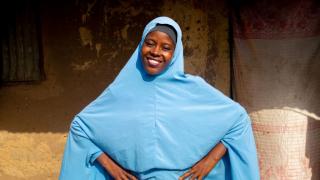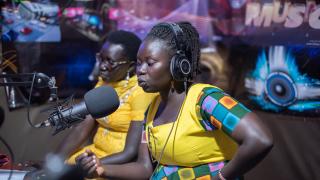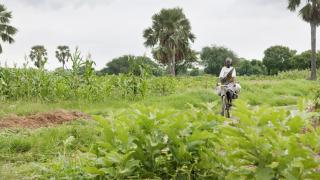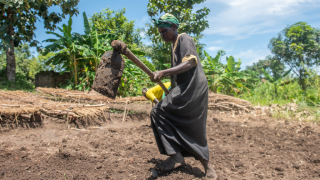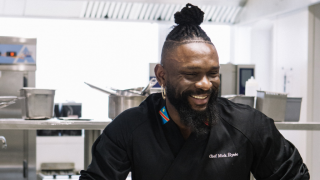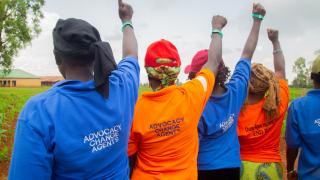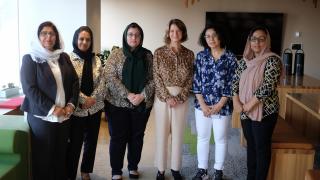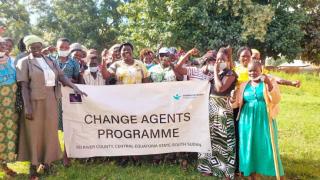From Conflict to Collaboration: A Couple's Transformation
From Conflict to Collaboration: A Couple's Transformation
The journey of two graduates of our programme, Mawa and Jackline, finding peace through our programme
Mawa and Jackline have been married for six years. They live in Wuluturu, Yei River County, South Sudan, with their two children. Their marriage was on the brink of collapse when they were enrolled in our Couples Connect Pilot Programme.
Today, Mawa shares that they now live together in harmony. Here is his story.
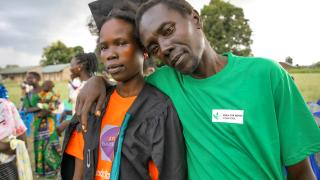
In my culture, being a man means being the head of the family. This title comes with responsibilities but also a lot of privileges.
As the head of my household, I was raised to be the sole provider and decision-maker. Everything I said or did was final. My wife wasn’t supposed to seek financial independence or earn a living; she was meant to stay home and take care of the family.
This belief shaped my expectations when I got married.
To my surprise and frustration, my wife was not the obedient woman I expected. She had a mind of her own and wanted to contribute financially. She would buy things for our home without my input, prepare meals with money I hadn’t given her, and even engage in small businesses and casual labour to make her own money. This independence didn't sit well with me. I was suspicious - where did she get the money? Why was she always away from home? Was she trying to compete with me or, worse, undermine my authority?
My suspicions turned to anger. I verbally insulted her and sometimes became violent. I threw away food she prepared with her own money and restricted her movements.
Our home became a battleground, and we became enemies living under the same roof.
One morning, my wife suggested we join the Couples Connect Programme with Women for Women International.
Initially, I was hesitant. But she mentioned that we might receive financial support if we attended together. Reluctantly, I agreed, motivated only by the prospect of money.
As we participated in the programme, something remarkable happened. We learned about teamwork, sharing responsibilities, effective communication, problem-solving and financial management.
Slowly, I began to understand and appreciate my wife’s efforts.
We started talking again, discussing business, farming and our children. I began supporting her business and we started working together. By the end of the programme, we received some capital, which we invested in her business.
Today, our lives are transformed. I can relax a little, knowing that I don’t have to shoulder every burden alone.
We are a team.
Recently, I developed an illness that affects my ability to walk or stand, making it difficult for me to work. My wife has become the primary breadwinner, contributing up to 70% of our family’s income. I now support her as best I can.
I am grateful to Women for Women International for this life-changing programme and for giving me another chance at love.
I am also grateful to my wife for being strong and persistent.
Without her, I don’t know how I would manage in my current condition.
To all women, I encourage you to support your husbands and not give up on your families. And to the men, I hope you learn from my experience: support your wives, and if you can’t support them, at least don’t stand in their way.
keep reading
Women's History Month Reading List
subtitle:
This Women's History Month, get inspired by these female authors who are using their #PowerToChange to bring awareness to injustice, inequality and the incredible resilience of women.
It’s been one week since two deadly earthquakes killed at least 36,000 people across Türkiye and Syria. Our partner, Women Now for Development (WND) tells us humanitarian aid is still not reaching war torn regions of Northwest Syria. As many as 5.3 million people in Syria have been left homeless by this disaster, according to the UN, many sleeping in subzero temperatures without food or medical attention.
8 Inspiring Moments in 2022
subtitle:
At Women for Women International, we know that even in a crisis, amazing things happen when women come together.
2022 has been a year marked by conflict and multiple crises. Yet, even in the darkest times, we continue to be inspired by the strength and resilience of the women we serve.
Festive Feminist Gift Guide
subtitle: Choose a gift that spreads joy further.
Thinking about buying something extra special this Holiday Season? Your purchases have power, and we are excited to share a Holiday Gift Guide with a difference – helping you find thoughtful gifts that support women survivors of war.
After years of silent suffering, the women of South Sudan are beginning to speak out about rape and sexual violence. Read about how Change Agents are breaking the silence on Violence Against Women over the radio.
This Giving Tuesday, with the support of our corporate partners, we are able to work with resilient women to rebuild their lives, gain crucial skills and transform their futures, families and communities. From meaningful cards to quality wardrobe staples, read on to discover the ways you can shop with purpose through your favourite brands on this global day of giving!
On a Roll Towards Empowerment
subtitle:
For women entrepreneurs in our Stronger Women, Stronger Nations programme, owning a bicycle has helped them grow their businesses and support their families. Read Mukunde and Alphonsine's stories.
As political figures and activists engaged in discourse, addressing the effects of climate change through political leadership, a small group of women in South Sudan assembled less than 1000 miles away. Faced with a withering supply of crops and livestock, they’re pursuing an avenue of farming that will make them more resilient.
To mark International Men's Day 2022 our newest Ambassador Mick Élysée demonstrates how men can channel their masculinity to create positive change.
All women are vulnerable to violence – with one in three experiencing some form in their lifetime. But those in conflict-affected regions are much more exposed to it. Living in conflict zones, experiences war and suffering displacement all increase the risk.
Following the conclusion of the 77th session of the UN General Assembly in New York, read our Global Policy and Advocacy Manager Nisha Singh's reflections on the past year of global advocacy, research and programme delivery to support women in Afghanistan.
Food and Water as Life and Death: Why Redefining the Power of South Sudanese Women is Urgent
subtitle:
In South Sudan, finding food and water is a woman's work. But it isn't easy, and two-thirds of the population are currently facing starvation. Read about some of the challenges women face in South Sudan and what one Change Agent, Cecilia, is doing about it.

